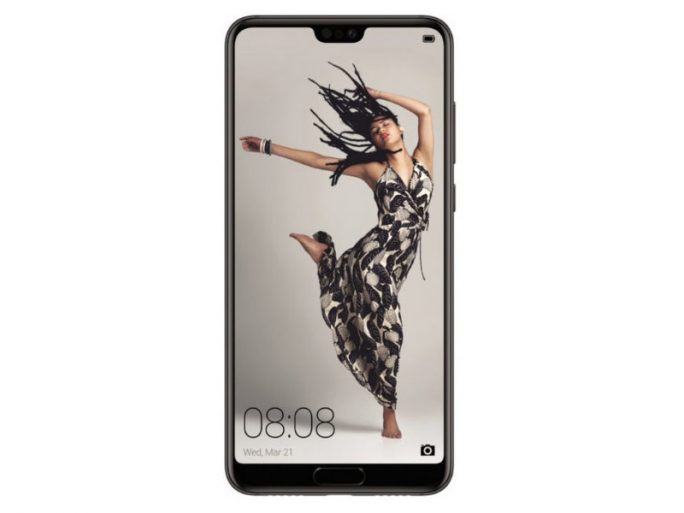Huawei’s P20 Pro Smartphone Launches With Triple Camera

The Chinese firm’s latest flagship has three rear-facing cameras and can see in the dark
Huawei has officially introduced its P20 and P20 Pro flagship smartphones, with the higher-end of the two featuring an industry-first three rear-facing camera lenses.
The move presents a challenge to No. 2 smartphone maker Samsung, which emphasised the dual rear cameras found in its S9 and S9+ at their launch event last month.
Huawei’s P20 features two cameras on the back, and both models have an additional front-facing camera.
Huawei ranks third in world smartphone sales, behind Apple and Samsung, in spite of not having a single carrier deal in the US. The company told interviewers at Mobile World Congress (MWC) in February that it is aiming for the top of the smartphone market in spite of that hurdle.
![]()
Low-light shots
The P20 Pro’s three rear cameras each have different features, with the main sensor able to capture 40 megapixel images. The second is a 20MP black-and-white sensor and the third has an 8MP telephoto lens.
It can take hardware-stabilised 3x zoom images, which can be increased to 5x using software assistance. That compares to 2x zoom for the S9+ and Apple’s iPhone X.
The phone features a “long exposure” mode that combines multiple shots, taken over a period of up to six seconds, to create an image that appears well-lit. The feature means low-light shots can be taken without the need for a flash or a tripod.
It uses artificial intelligence to eliminate the blurring that often occurs when taking handheld shots in low light.
And a built-in AI chip means the processing can take place without the need to transmit data to a remote server.
The phone uses AI-powered object recognition to adjust settings to suit the subject of each shot, and to automatically catalogue what’s in an image.
The camera software can make composition suggestions, such as keeping an image level, or tightening or widening the frame, and can automatically zoom back when the user is taking a group shot. It also features a portrait lighting effect similar to that of the iPhone X.
An auto-focus feature guesses what the focus area will be at a given moment and keeps that point in focus. The feature applies to both photos and videos.
It features a screen cut-out, meaning the display wraps around the sensors at the top of the front face, but the “notch” can be turned off in the phone’s settings.
When it’s off, the front panel appears to have a straight black bezel across the top, with notification and status icons appearing on either side of the sensors. The notch is switched off by default for certain functions, like displaying photos.
Unlike some phones that have done away with a physical home button entirely, Huawei keeps the button, which also functions as a fingerprint sensor and acts a mini touchpad that can accept customised gestures.

‘Too competitive’?
The P20 Pro, launching on 6 April, is priced at 899 euros (£788), which is less than both Samsung’s S9+ at 949 euros and the iPhone X at 1,149 euros.
The P20 goes on sale today for 649 euros. Huawei is also selling a Porsche Design phone with the P20 Pro’s features plus more memory, an in-display fingerprint sensor and other options, set to go on sale on 12 April. The Porsche Design model with 512 GB of storage costs 2,095 euros.
While Huawei narrowed the sales gap with Apple last year, analysts said it may have difficulty distinguishing itself from the competition based purely on camera quality.
The company also faces difficulty in selling its devices in the US, where politicians and intelligence chiefs have said they believe Huawei hardware could be used to carry out espionage activities. US officials have also said Huawei’s competition with US companies in areas such as 5G standard-setting poses a national security threat.
AT&T and Verizon reportedly pulled out of talks to sell Huawei phones due to political pressure, and Best Buy has also cut its ties with the company. Huawei phones can be purchased in the US via retailers such as Amazon and from Huawei’s own website.
At MWC Huawei said US officials fear the company because it’s “too competitive”.
Huawei has deals with major carriers and retailers in more than 170 countries.
What do you know about mobiles past and present? Try our quiz and find out!